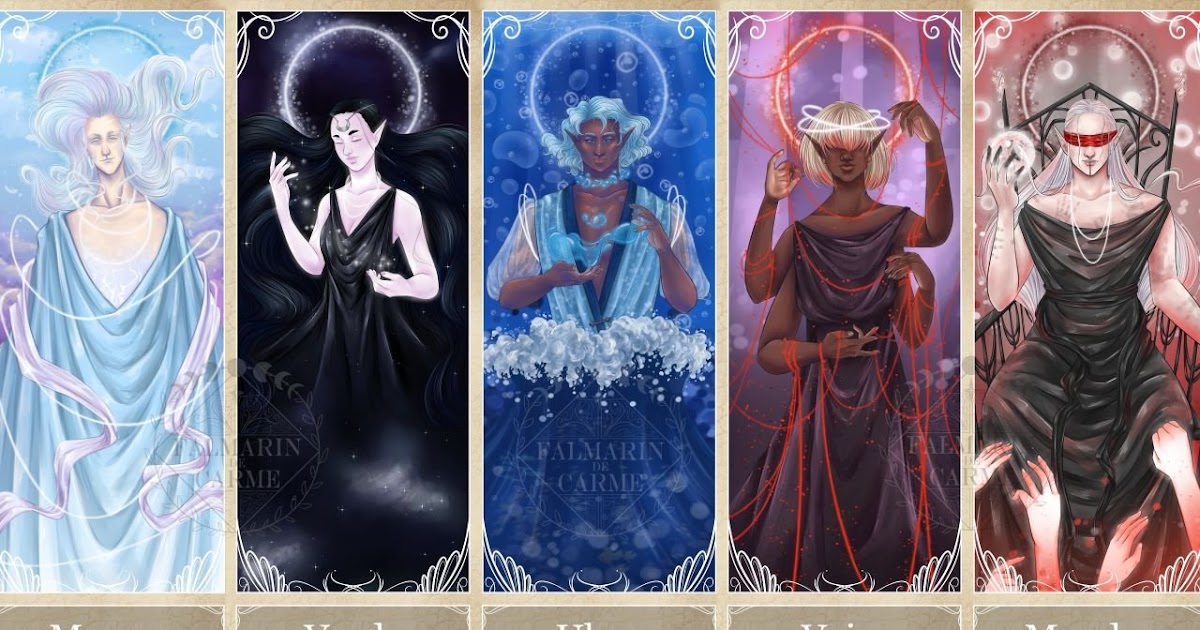SMOOSH JUICE
Religion in Middle-earth

 |
| Art by Falmarin de Carme |
I came across this site a couple of weeks ago that compiles additional background material generated for a Finnish Middle-earth based role-playing campaign. What I found most interesting is its extrapolation and elaboration of the religions for Middle-earth.
This is a perceived area weakness pointed out in Tolkien’s work in the past. In Imaginary Worlds, Carter notes critically that Tolkien’s world “has no religion in it.” In Dragon #127, Rolston in his review of Lords of Middle-earth for MERP gets to the gamer brass tacks of it:
According to Lords of Middle-earth, Middle-earth has a “seemingly inexhaustible collection of deities, pantheons, practices, and religions.” However, all of them are wrong. Eru is the only god, and the Valar and the Maiar are simply his servants. Enlightened folk (Elves and Dunedain) practice a nonritualistic monotheism with no formal clergy – pretty boring stuff by FRP standards.
A lot of epic fantasy has followed Tolkien’s areligious example (Jordan’s Wheel of Time series, for one) and as modern society becomes ever more secular, it probably is less and less seen as a deficit. Still, if you think of religion is a fascinating aspect of the real world well worth including in imagined worlds (where you at, Gloranthaphiles?) it’s cool to see the work Sampsa Rydman has done here. The religions described build on the details provided in Tolkien’s extensive writings and (so far as I am familiar with the lore) the new things added seem consistent.
For instance, the orthodox worship of Númenor is as described in terms of its simple ritual and insistence that only the king prays to Eru. The description of a Trinity of Eru, Word, and Flame Imperishable seems a credible extrapolation from details given. Likewise, the sort of Satanic faith of the Black Númenoreans is given a creed that is consistent with what me know about the downfall of their land but with reasonable details as to what Sauron might have convinced them to get them on his side. “Doing evil” (from the point of view of the doer) has historically not really been a common motivator for human religions, so it makes more sense that those that Sauron seduced to his cause were given some other line: “The Valar have wronged both you and the true god, and the true god will redress that wrong if you help him out.”
 |
| Art by Angus MacBride |
Of course, an issue with religion in Middle-earth is canonically we know what’s true and what isn’t. For a game campaign I think it might be more fun, as Rolston implies, if that weren’t true. Going as far as Jacqueline Carey’s The Sundering duology and switching the moral polarity of the two sides doesn’t really help, but borrowing her idea that the Creator is out of the picture and the lesser gods have differing understandings or interpretations of how to carry out their mission leads to a more ambiguous situation with more possibilities for equally valid appearing religions. In other words, something like the sort of cosmologies or interpretations offered in fantasy works that utilize Judeo-Christian mythology as their backdrop. Really just making the complete truth unknowable to beings within the world (even immortal ones like the elves) would serve the same purpose, though I think most people familiar with Middle-earth would tend to make assumptions that would make this minimal change approach Less effective.
I don’t think a Middle-earth game (or a game in any setting) has to have religion (unless you got clerics, in which case, you sort of already do), any more than you are required to explore any other element of culture, but if you’re planning to run a long campaign I think it’s an interesting facet to add.
